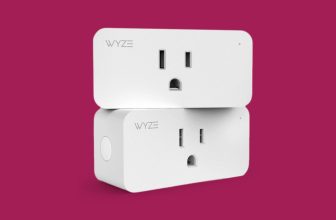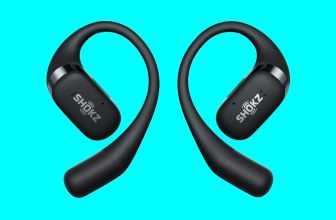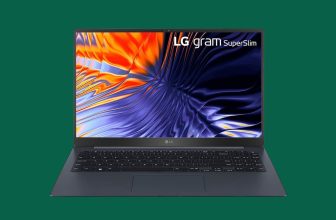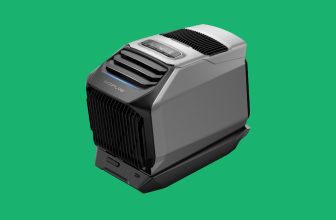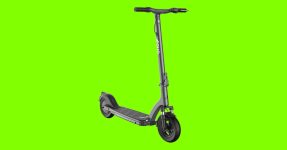
Apollo Air 2022 Review: Reliable but Quirky
I’ll be trustworthy: I do not like utilizing apps for scooters. Just give me all of the controls on the factor itself. Sure, it is good to have the ability to management the extent of regenerative braking and the max pace via an app, but more often than not, it is a nuisance. Thankfully, the Air shortly paired with my cellphone, I enabled the highest pace, maxed out the regen brake, and I used to be merrily on my approach and topping out round 19 miles per hour because of the 500-watt motor.
You’re supposed to be hitting 21 miles per hour, and also you doubtless will. As a 6’4″ man, I’m a little over the Apollo Air’s stated weight capacity of 220 pounds. Range-wise, I got around 13 to 15 miles on it riding throughout New York City. Though on a trip when I went from Bed-Stuy, Brooklyn, over the Manhattan Bridge and back, I found myself kicking off the ground to make the last few blocks home. I’m certain most people can get closer to 20 miles out of it if not more, though Apollo’s 31-mile claim feels like a stretch for anyone.
The dual front fork suspension and the 10-inch, air-filled tires make for a smooth riding experience. I barely feel the bumps and holes on the road. And I rarely had to use the front drum brake—the regenerative brake was often more than enough to bring me to a stop. In the moments when I did need to come to a halt, the brake did the job.
Acceleration isn’t great on this scooter. When the light hits green and I hit the thumb throttle, the Air moves on asphalt like a tumbleweed in the desert. It takes some time to build up to its top speed. On inclines (like all the bridges in Brooklyn), expect those speeds to dip to somewhere between 11 and 14 mph. It just doesn’t have the power to effortlessly cruise up slopes.
On my return ride home with my friend, who was using the Niu scooter, both our rides had around two bars of juice left. Despite this, he was scooting at the advertised 20 mph speed, and I was stuck at around 14 mph. For some reason, I’ve found the Apollo sometimes drastically slows down when it dips to two bars. It’s a fickle thing.
It’s a perfectly fine scooter, but my biggest issue with it is that it costs $1,200 (usually “on sale” for $999). I had a much nicer experience with the Niu, which weighs only 5 pounds more, goes up to 20 mph, and accelerates quickly. They both handle inclines pretty similarly. However, the Niu KQi3 Pro prices $799. That’s a giant worth distinction.
Niu has a broader service and vendor community, so it is doubtless simpler to repair any issues that will come up. Apollo has 5 service facilities within the US. I need to say that Apollo’s customer support is best, but I’ve discovered complaints about the expertise coping with each manufacturers. If you’ve this a lot to spend on a scooter, I recommend stepping as much as the Speedway Mini 4 Pro ($1,049). It has a barely extra dependable vary and quicker speeds, and it’s light-weight and simple to fold.



